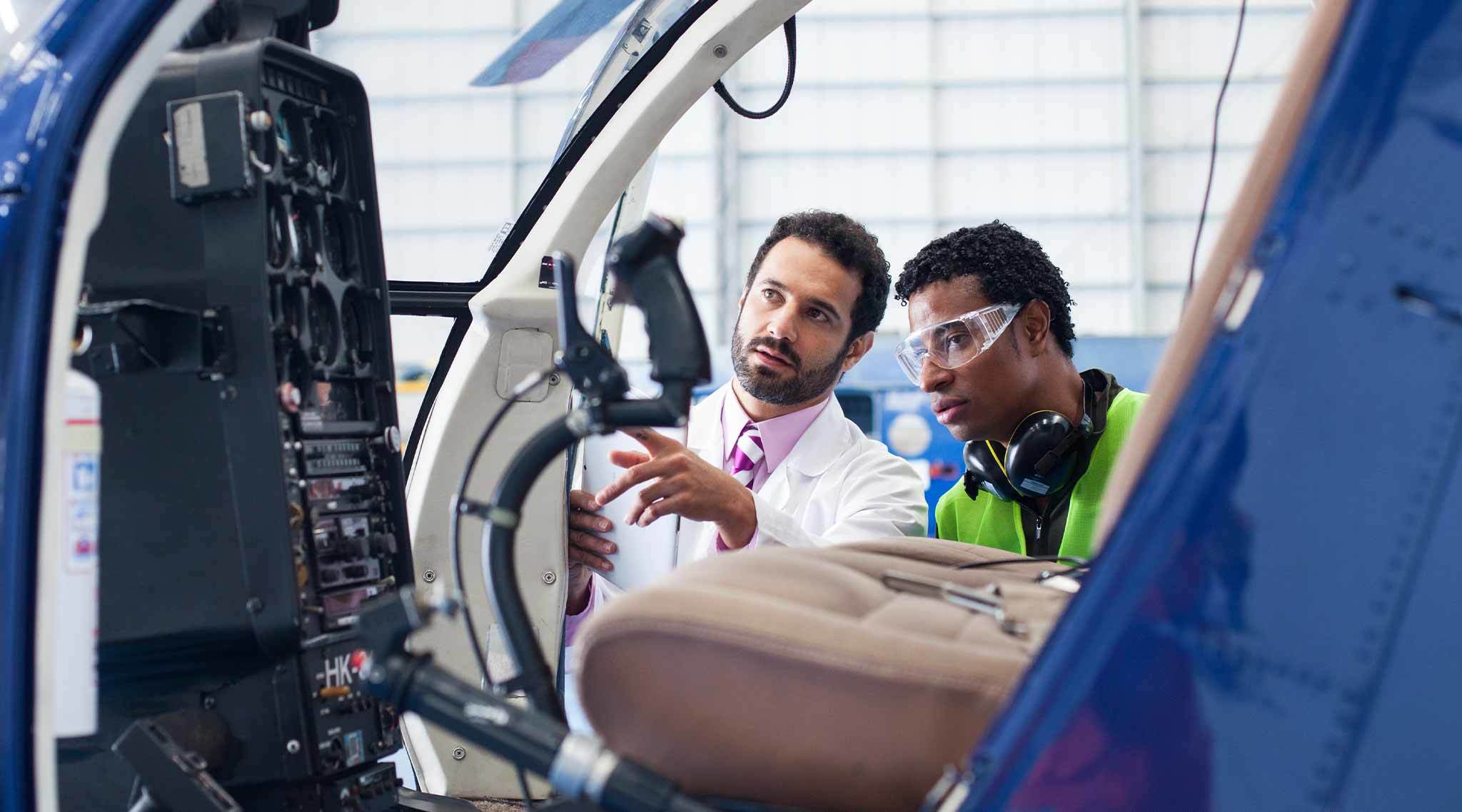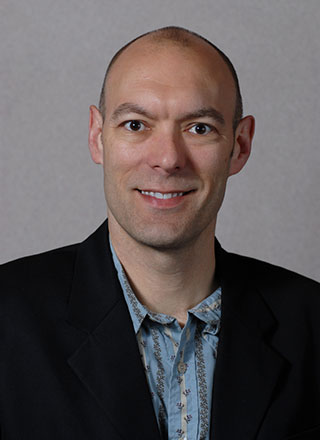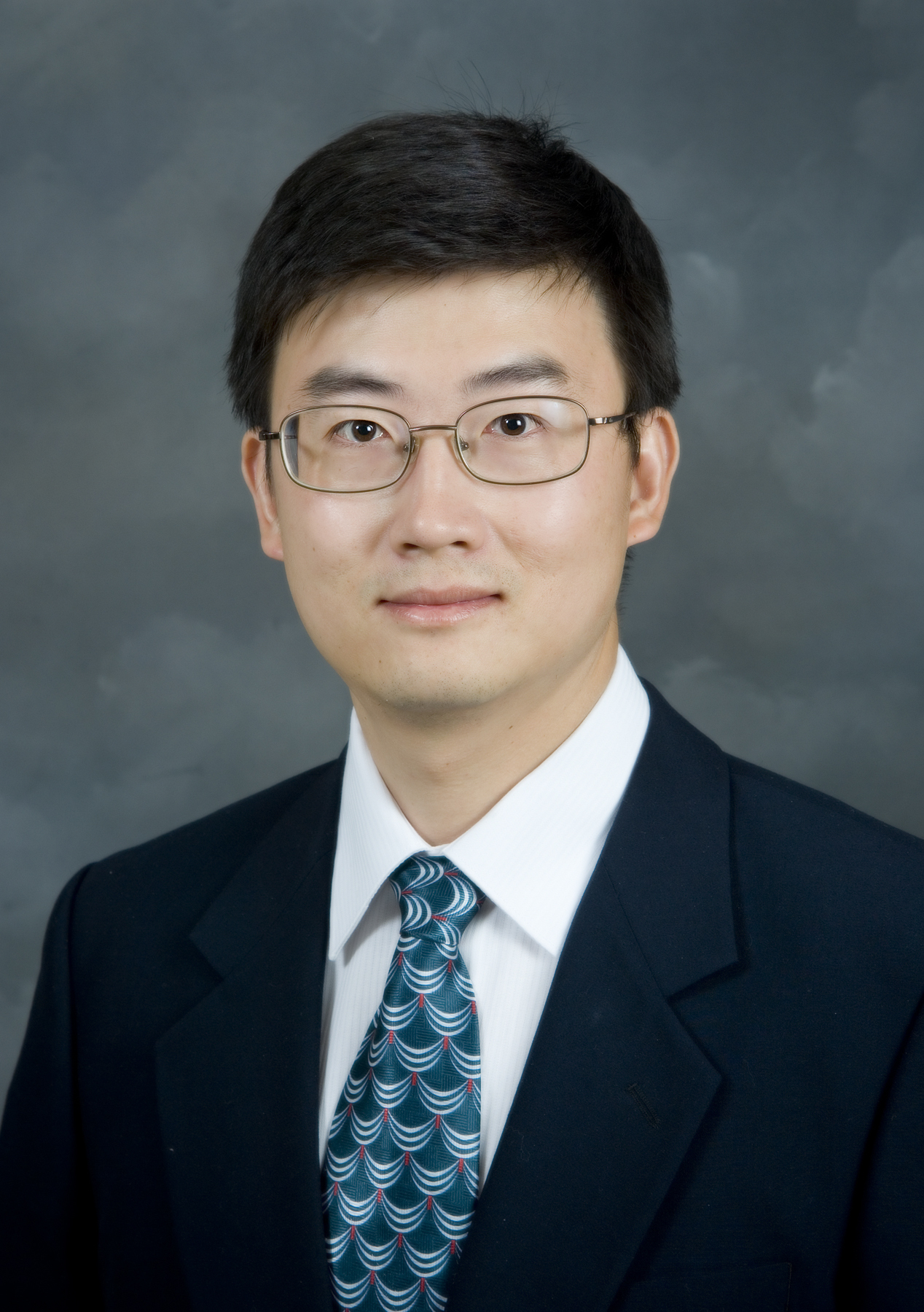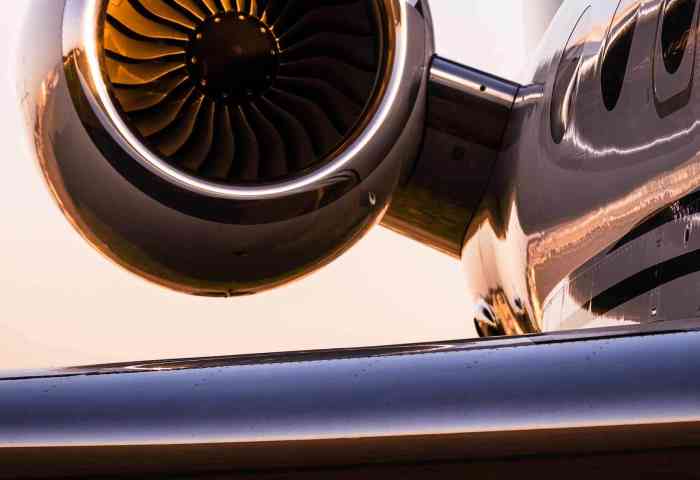Get started with Mizzou
ApplyGraduate certificate
Technology created the aerospace industry and has fueled its growth since. If you seek to leave an impact through design or research, power your success with an online graduate certificate in aerospace engineering from the University of Missouri.
A specialized, rigorous curriculum explores the field’s scientific and engineering foundation. You’ll elevate your understanding of fluid mechanics, aerodynamics, dynamics and control, materials and structures to improve, analyze and optimize air and spacecraft performance. This unique program broadens what mechanical engineers and industry scientists know about aerospace and flight applications and helps current aerospace professionals advance into an engineering or project manager role.
Students can earn this graduate certificate as a standalone, career-enriching credential or continue their education by applying their credits to the master of science in mechanical and aerospace engineering.
Quick facts
Official name
Graduate Certificate in Aerospace EngineeringCampus
Program type
Graduate certificateAcademic home
College of EngineeringDelivery mode
100% onlineAccreditation
Higher Learning CommissionCredit hours
12Estimated cost
$8,599.20*This cost is for illustrative purposes only. Your hours and costs will differ, depending on your transfer hours, your course choices and your academic progress. See more about tuition and financial aid.
Careers
Based on figures from the Bureau of Labor Statistics, the aerospace industry needs more engineers. Between 2019 and 2029, 8% more opportunities are expected to open for professionals with a skill set rooted in both aerospace and mechanical engineering principles.
For individuals interested in advancing or transitioning into the field, the online graduate certificate in aerospace engineering positions you for these roles:
- Learn how to apply the fundamentals of incompressible and compressible flows, wing and airfoil theory, and fluid kinematics and dynamics.
- Shape future construction and technology by understanding how to analyze aircraft engines and spacecraft propulsion systems.
- Figure out ways to enhance already-reliable systems by exploring the mechanics and design issues of aerospace structures, including analyzing thin skins with stiffeners for external surfaces, bulkheads and frames for shape support and fasteners for binding components together.
- Think about performance through a physics perspective—specifically, aircraft flight mechanics responsible for performance, dynamics, stability and control.

Career prospects
Meet the next decade’s growing demand. The online graduate certificate in aerospace engineering equips you with the knowledge to conceptualize, design, analyze and optimize the performance of engines, aircraft and systems spanning from recreational to commercial and government use.
Based on where you see yourself, this certificate program prepares you to take charge as a senior project manager, engineering manager or program manager in the aerospace industry. Potential job titles include:
- Senior engineer
- Project engineer
- Staff engineer
- Engineering manager
- Program manager
- Aerodynamics engineer
- Flight test engineer
- Guidance, navigation, and control (GN&C) engineer
- Thermal management engineer
- Airframe structural analysis engineer
- Propulsion engineer
Program structure
The University of Missouri’s Department of Mechanical Engineering looks toward the future, preparing our students to contribute to technological developments. Reflecting this mindset, we prioritize research and advanced education through all degree programs and course offerings. Our online graduate certificate in aerospace engineering is one of three such post-baccalaureate credentials in the country. Our research-active faculty members guide your progress and encourage your interest in this cutting-edge field.
This online certificate consists of 12 credit hours over four mechanical engineering-based disciplines focusing on aerospace applications:
- Aerospace fluid mechanics: Aerospace fluid mechanics are integral to modern aircraft design. Topics expand what you know about flow physics, particularly fluid flow around and inside aircraft, engines and other systems.
- Aerospace propulsion: Aerospace propulsion creates and refines flight technologies. You’ll explore the laws of motion and the force of fluid in relation to momentum and flight and prepare to analyze such systems within aircraft and spacecraft engines.
- Aerospace structures: Structural mechanics and the behavior of certain materials influence the construction of aircraft and systems. You’ll learn more about material limitations, structural stability, strength and design concerning flight.
- Aerospace flight mechanics: Prepare to advance aerospace research and contribute to new or progressing theories through courses exposing you to the dynamic behaviors and control of flight vehicles.
All courses are fully online—no on-campus visits are required. The typical student takes one to two courses per semester to finish their certificate in a year.
Course work
Across these four areas, you’ll study the following topics:
- Potential and viscous flow theory
- Computational fluid dynamics and relevant differential equations
- Discretization methods
- Wing and airfoil theory
- Gas dynamics involving compressible flow and heat transfer
- Aircraft engine and spacecraft propulsion systems
- Mechanics and design of aerospace structures
- Material mechanics
- Aircraft design for analysis and optimization
- Flight dynamics and performance
- Spacecraft motion
- Altitude representations, dynamics and rotational kinematics
- Atmosphere flight mechanics
Delivery
100% onlineCalendar system
Semester-basedTypical program length
1 yearTypical course load
1 or 2 classes each semesterAccreditation
The University of Missouri is accredited by the Higher Learning Commission, one of six regional institutional accreditors in the United States.
Faculty spotlight

Craig A. Kluever is a professor in the Mechanical and Aerospace Engineering Department at the University of Missouri. He worked in the Space Shuttle Guidance, Navigation and Control group at Rockwell International before joining MU. His research interests include mission analysis and design, trajectory optimization, guidance and control of aerospace vehicles, reentry flight mechanics and orbital mechanics. His research and consulting efforts have been funded by NASA, SpaceX, Aerojet and Global Aerospace Corporation. He is a Deputy Editor of the AIAA Journal of Guidance, Control, and Dynamics.

Chung-Lung (C.L.) Chen is an endowed-chair professor in the Mechanical and Aerospace Engineering Department and the director of the Thermal, Fluid & Energy Laboratory at the University of Missouri. Before joining MU in 2011, he was the department manager and founder of Applied Computational Physics and Thermal & Flow Physics at the Teledyne Scientific (formerly the Rockwell Science Center).

Ming Xin is a Professor in the Department of Mechanical and Aerospace Engineering, University of Missouri. His research interests include flight mechanics, guidance, navigation and control of aerospace vehicles. His research has been funded by NSF, NASA, DOE and USDA. He was the recipient of the NSF CAREER Award. He is an Associate Fellow of AIAA and a Senior Member of IEEE. He is a Technical Editor for IEEE/ASME Transactions on Mechatronics and an Associate Editor for AIAA Journal of Spacecraft and Rockets.

Hussein Nassar is an Assistant Professor of Mechanical and Aerospace Engineering at University of Missouri, Columbia. He studied Engineering, Mechanics and Mathematics in France and joined MU’s faculty in 2018. His research interests are in the area of solid mechanics and his activities are supported by the National Science Foundation and by the Army Research Office.
